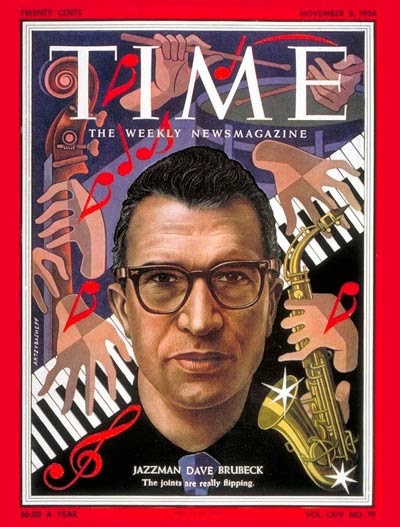 |
| Dave Brubeck |
The Soviet Union, with the Nazi threat behind them, seemed
to be everywhere — signing treaties and attending summits. The French weren’t having a good year. In a
warning unheeded by the U.S. later, the French lost Vietnam. And Algeria’s war
of independence from France began.
Nasser took over in Egypt. Joseph McCarthy got his comeuppance,
condemnation from fellow Senators. Many
in the South weren’t happy with the Supreme Court. The justices officially
banned segregation in public schools.
Children began receiving the polio vaccine. The World Series was broadcast in color. From
Here To Eternity won the Academy Award.
Other top movies of the year were: Rear
Window, The Caine Mutiny, Sabrina, and The High and the Mighty. William Golding’s Lord of the Flies, J. R. R.
Tolkien’s The Fellowship of the Ring
and Anais Nin’s Spy in the House of Love topped the bestseller lists. The Mystery
Writers of America gave The Edgar for Best Mystery Novel to Beat Not The Bones by Charlotte Ray. Billboard listed its top five of the year — ‘Little Things Mean A
Lot’ by Kitty Kallen, “Wanted” by Perry Como, ‘Hey There” by Rosemary Clooney (George’s aunt), “Sh-Boom’
by The Crewcuts and “Make Love To
Me,’ by Jo Stafford. Oprah Winfrey debuted in life as did Michael Moore, Harvey Fierstein and Denzel
Washington. Saying “goodbye,” were Lionel
Barrymore, Henri Matisse, Colette and Frida Kahlo. If you were
around, what were you doing during this year of the wood horse?









